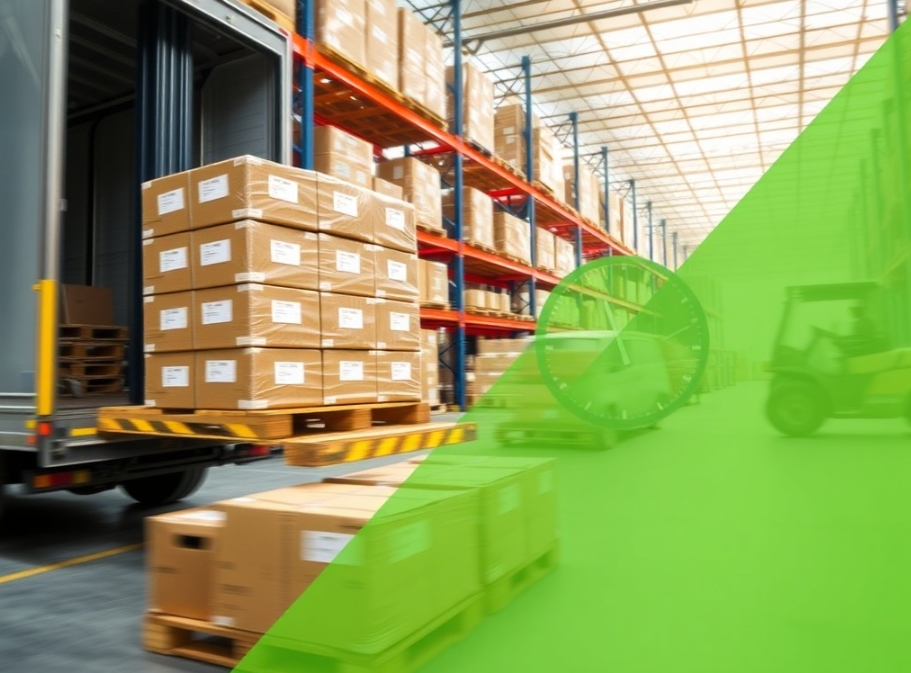Why Speed Still Matters in B2B
In business-to-business logistics, reliability often matters just as much as price. When one company depends on another to supply goods, components, or equipment, delays don’t just cause irritation, they can halt production, affect downstream delivery, and damage customer relationships. That’s why quick and dependable fulfilment has become a top priority.
Fast service is no longer seen as an extra; it’s expected. Businesses that can’t deliver quickly risk being replaced by competitors who can. This expectation has led to a rise in demand for services like next day pallet delivery, which offer predictable turnaround with minimal disruption.
Building Confidence Through Consistency
Every time a delivery arrives on time, it builds trust. Clients come to rely on that consistency and are more likely to place repeat orders when they know they won’t be let down. Even a minor delay can affect production schedules or planned launches, which makes businesses cautious about who they choose to work with.
A supplier who proves they can stick to agreed schedules earns more than just a positive review; they earn a long-term partnership. In many cases, logistics becomes a core part of the client’s planning, so the smoother that process is, the more valuable the relationship becomes.
The Role of Communication and Transparency
Speed alone isn’t enough. Clients want to know where their goods are and when they’ll arrive. Clear communication, through tracking updates, proactive notifications, or even a simple phone call when something changes, goes a long way in managing expectations.
When businesses are upfront about timelines and transparent about any delays, they’re more likely to maintain client confidence, even when things go wrong. It’s the silence or guesswork that leads to frustration and erodes trust over time.
Going Beyond the First Impression
Winning a new client with a fast first delivery is one thing; keeping them through ongoing performance is another. Fulfilment speed becomes part of the brand’s reputation. It influences how others talk about the business and whether clients recommend the service to others in their network.
For companies operating in competitive sectors, every edge matters. Fast, reliable pallet delivery doesn’t just move goods from A to B, it supports wider business goals, helps meet customer demands, and reinforces a brand’s promise. In that way, logistics becomes a key factor in shaping long-term success.
The Strategic Role of Speed in Long-Term Success
Ultimately, B2B logistics isn’t just about moving goods from point A to point B—it’s about empowering business continuity and success. Efficient delivery operations ensure that clients can meet their own deadlines, uphold production schedules, and satisfy end customers without interruption. Fast, reliable service is not a luxury—it’s a strategic necessity.
When logistics providers commit to speed and consistency, they go beyond being service vendors—they become trusted partners in their client’s supply chain strategy. This partnership fosters greater integration, better forecasting, and stronger alignment between supplier and customer goals.
Furthermore, companies that build their reputation around dependable fulfilment show the market that they are serious about performance, accountability, and professionalism. They position themselves not just as suppliers, but as enablers of growth, efficiency, and competitive advantage.
Conclusion: Speed as a Differentiator in B2B Logistics
In today’s highly competitive B2B environment, speed isn’t just a metric—it’s a defining trait of successful logistics providers. When paired with consistency, clear communication, and transparency, fast fulfilment becomes a powerful tool for building trust, securing repeat business, and enhancing brand perception.
Clients don’t just remember how fast a delivery arrived—they remember whether it arrived on time, whether they were kept informed, and whether the process was smooth. These experiences shape long-term decisions and determine which partners get renewed contracts and referrals.
For businesses looking to stay ahead, investing in rapid and dependable logistics operations is no longer optional. It’s a core element of strategic growth—one that helps meet customer demands, supports operational planning, and reinforces the company’s promise of excellence.
In this way, speed becomes more than just a service feature—it becomes a reputation builder, a trust signal, and a lasting competitive edge.



























